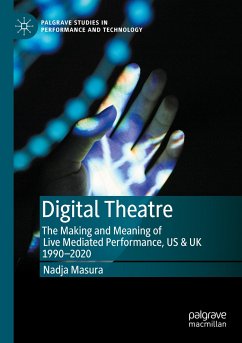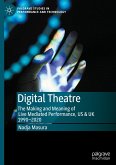Digital Theatre is a rich and varied art form evolving between performing bodies gathered together in shared space and the ever-expanding flexible reach of the digital technology that shapes our world. This book explores live theatre performances which incorporate video projection, animation, motion capture and triggering, telematics and multisite performance, robotics, VR, and AR. Through examples from practitioners like George Coates, the Gertrude Stein Repertory Theatre, Troika Ranch, David Saltz, Mark Reaney, The Builder's Association, and ArtGrid, a picture emerges of how and why digital technology can be used to effectively create theatre productions matching the storytelling and expressive needs of today's artists and audiences. It also examines how theatre roles such as director, actor, playwright, costumes, and set are altered, and how ideas of body, place, and community are expanded.
"This book is a valuable addition to anglophone literature on theatre and the performing arts, new media, and the digital paradigm. It certainly enriches the knowledge base of the field of arts and humanities. Its refinement would only allow it to shine brighter to the advantage of scholars, practitioners, and students, who I am sure, will relish its timely contribution to the currently embattled art of the theatre." (Aikaterini Delikonstantinidou, European Journal of American Studies, Issue 1, 2021)








